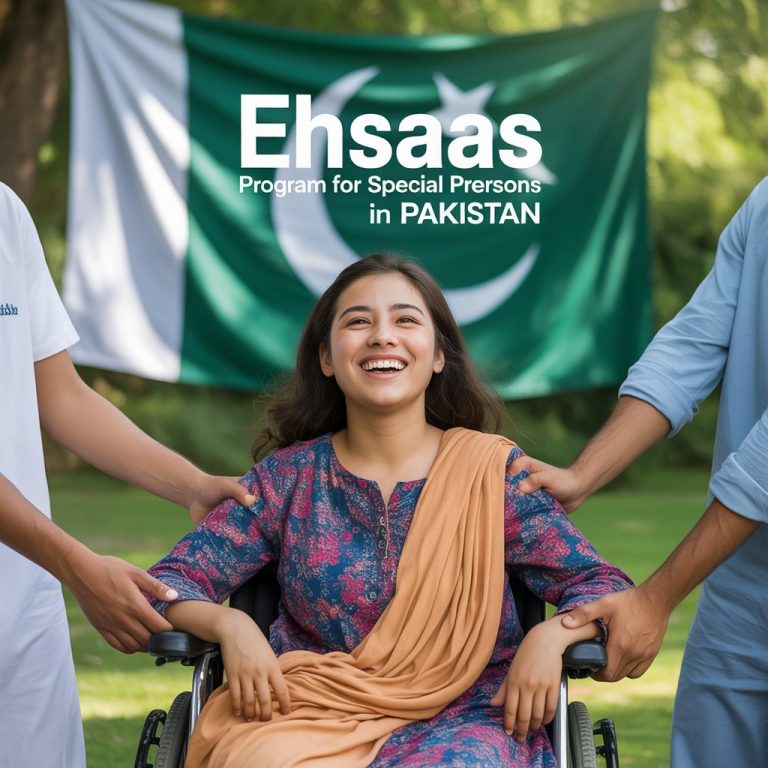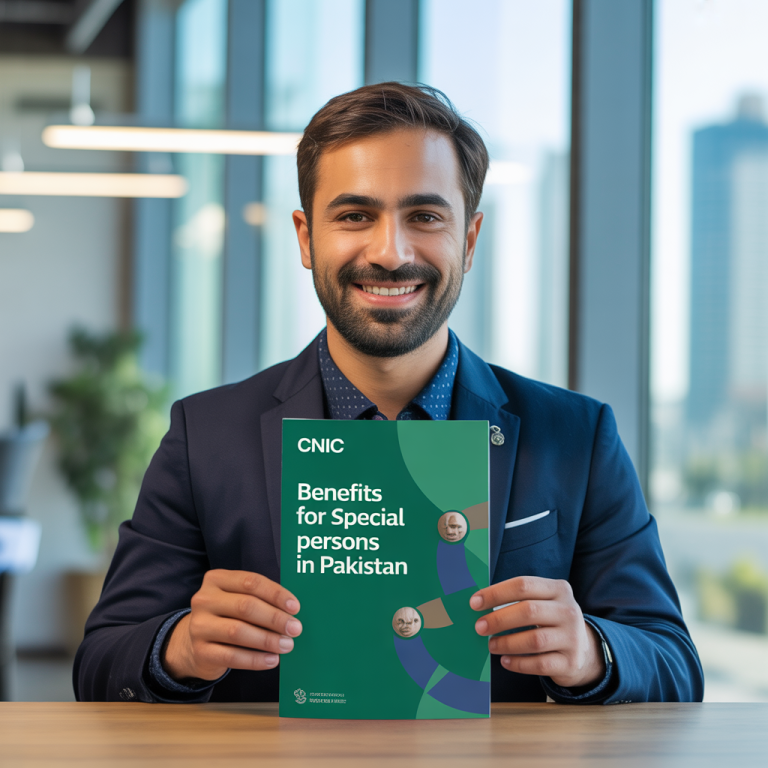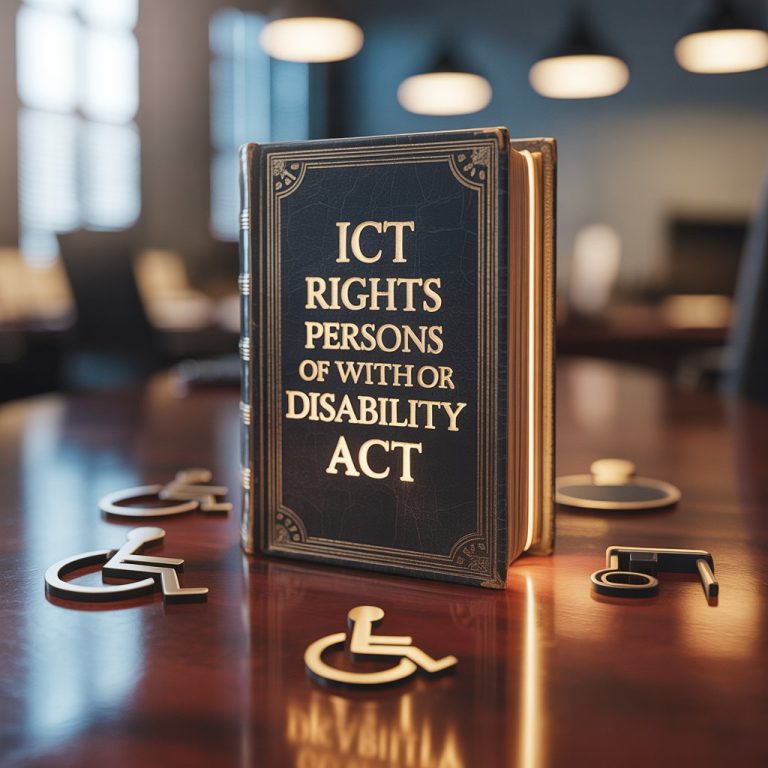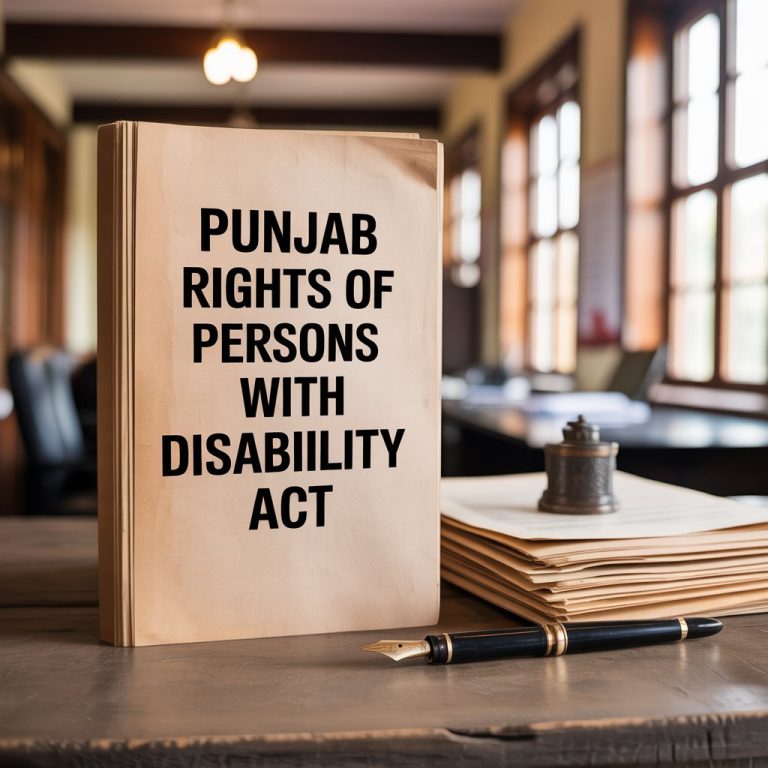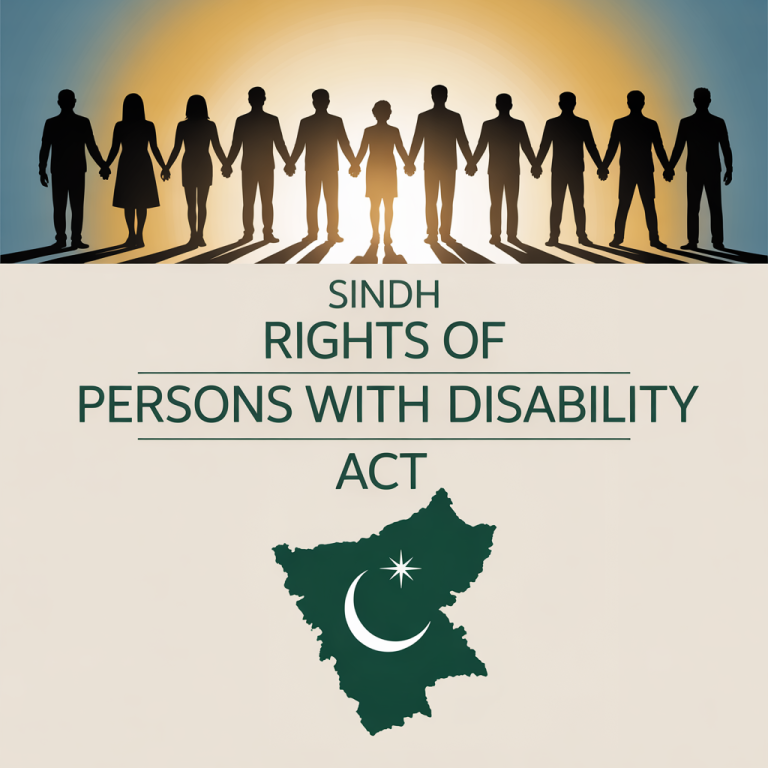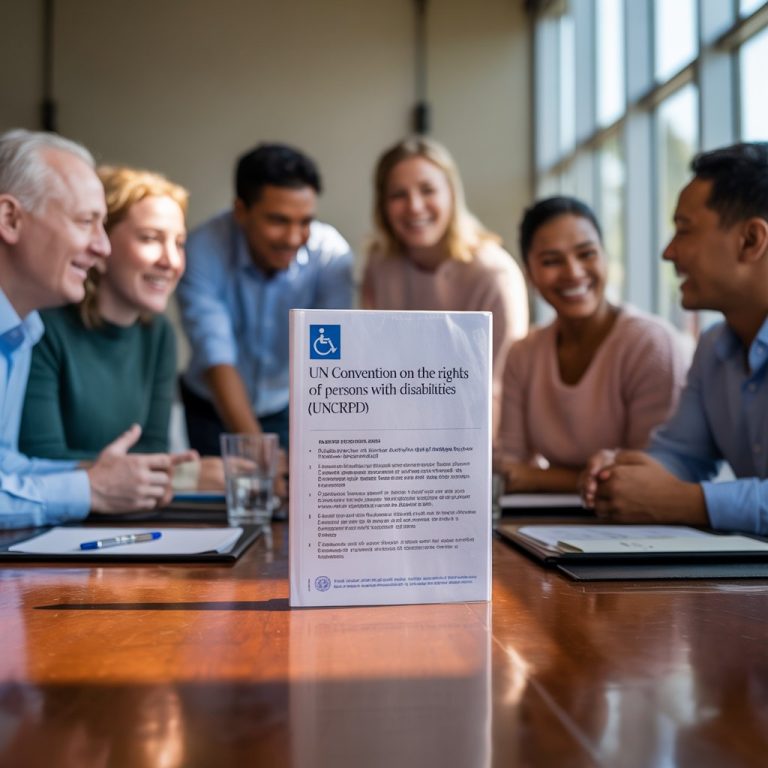Duty-Free Import Policy for Assistive Devices in Pakistan
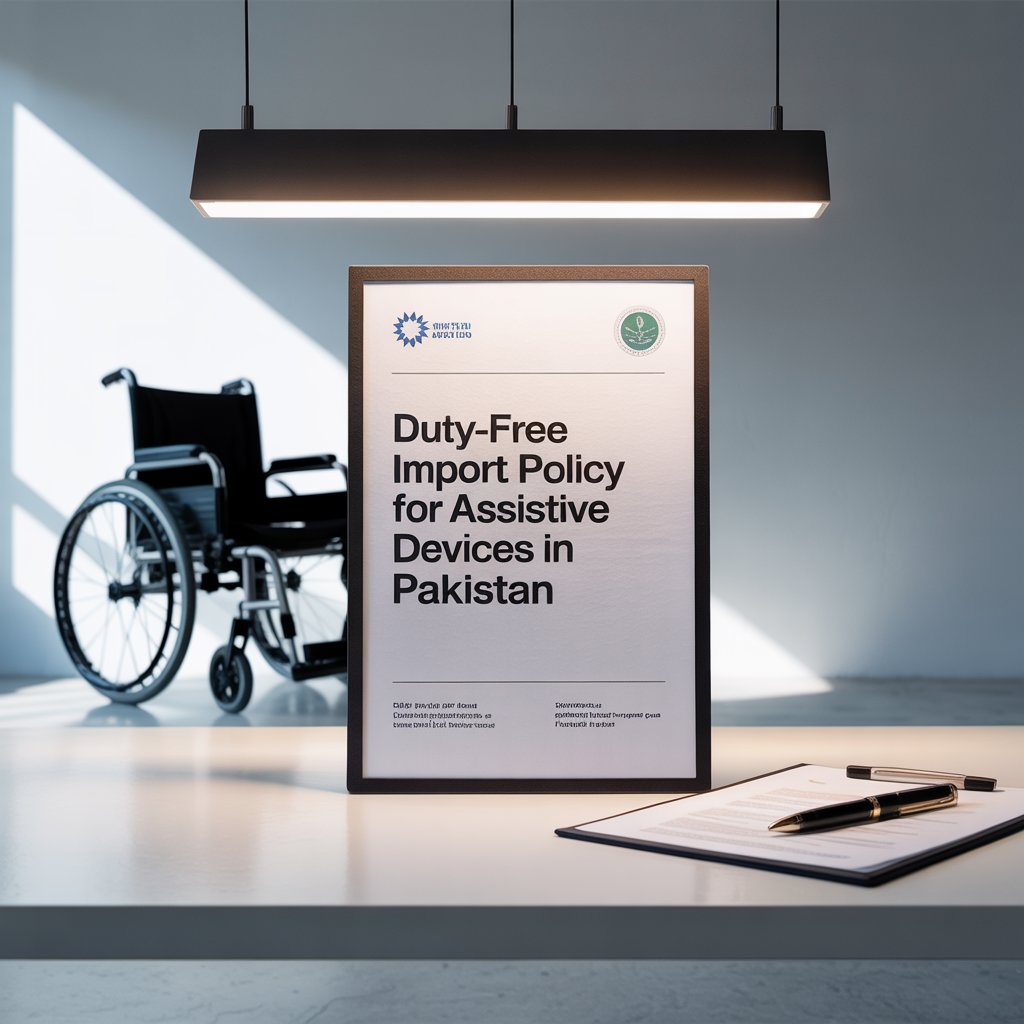
Empowering persons with disabilities (PWDs) starts with access—and assistive devices form the foundation of that access. Be it mobility, communication, or independence, tools like wheelchairs, hearing aids, white canes, and braille readers drastically enhance the quality of life. Recognizing their importance, Pakistan’s Import Policy for Assistive Devices allows duty-free import of these essential items. But what does that mean in practice?
In this article, we break down the legal frameworks, import procedures, benefits, and challenges surrounding duty-free assistive device imports—and why they’re a crucial piece of inclusive development.
Introduction to Assistive Devices and Accessibility Rights
Globally, assistive devices are recognized as enablers of health, education, employment, and social participation. The World Health Organization (WHO) identifies them as tools that bridge the gap between limitations and opportunities. For Pakistan’s millions of persons with disabilities, the availability of such devices often means the difference between dependence and dignity.
Pakistan’s Commitment to Accessibility and Inclusion
As a signatory to the UN Convention on the Rights of Persons with Disabilities (UNCRPD), Pakistan is bound by Article 4 (general obligations) and Article 20 (personal mobility), which emphasize:
- Promoting the availability and use of assistive technologies.
- Facilitating personal mobility at the lowest possible cost.
The duty-free import policy is a direct reflection of these commitments.
Overview of the Import Policy for Assistive Devices in Pakistan
Pakistan’s Import Policy Order—updated periodically by the Ministry of Commerce—clearly provides exemptions on customs duties, sales tax, and regulatory duties for various assistive devices. These include both personal use and bulk imports by NGOs, DPOs, and medical institutions.
Key Policy Tools:
- Import Policy Order (IPO)
- Statutory Regulatory Orders (SROs)
- FBR notifications and tariff clarifications
Which Assistive Devices Are Duty-Free in Pakistan?
The government has officially exempted customs duties and taxes on the following items:
- Wheelchairs (manual and electric)
- Hearing aids
- White canes for the blind
- Braille books, printers, and readers
- Prosthetic limbs and orthopedic devices
- Speech-generating devices
- Mobility scooters and walkers
Customs Exemptions: Legal Basis and Procedures
Duty-free import falls under:
- SRO 567(I)/2006 and its updates
- Chapter 99 of the Pakistan Customs Tariff
- Specific headings like HS Code 8713 for wheelchairs and 9021.40 for hearing aids
These regulations define which goods qualify and the procedures required to access the exemption.
The Role of FBR and Ministry of Commerce
The Federal Board of Revenue (FBR) and Ministry of Commerce collaborate to:
- Maintain lists of exempt goods
- Issue clarifications and updates
- Monitor import declarations through WeBOC (Web-Based One Customs) system
Eligibility Criteria for Duty-Free Import
Who can import these devices duty-free?
✅ Persons with disabilities (with a certified CNIC)
✅ Non-Governmental Organizations (NGOs) working in the disability sector
✅ Educational and rehabilitation institutions
✅ Hospitals and medical suppliers
How to Apply for Duty-Free Import of Assistive Devices
Step-by-Step Process:
- Obtain a disability certificate from a relevant government authority.
- File an application with FBR’s WeBOC system or the nearest customs office.
- Attach documentation:
- CNIC
- Medical certificate
- Pro forma invoice or catalog of the device
- NGO registration (if applicable)
- Receive customs clearance based on device classification under the IPO/SRO.
List of Approved Assistive Devices and Their HS Codes
| Device | HS Code |
|---|---|
| Wheelchairs (manual) | 8713.10 |
| Wheelchairs (electric) | 8713.90 |
| Hearing aids | 9021.40 |
| Braille printers | 8443.32 |
| White canes | 6602.00 |
These codes are critical to ensuring the correct duty-free classification.
Braille Equipment and Reading Aids
The Pakistan Association of the Blind and libraries for the visually impaired often import:
- Braille embossers
- Braille typewriters
- Braille paper
Yet delays in clearance and lack of trained customs officials remain a hurdle.
Importing Wheelchairs: Manual and Electric
Manual wheelchairs are easier to import, while electric-powered ones often require:
- Battery certification
- Voltage compliance
- Safety standards documentation
Customs officials sometimes delay release due to lack of product knowledge.
Hearing Aids and Auditory Equipment
Imported hearing aids benefit thousands, especially children in early education. However:
- After-sales services are minimal
- Lack of trained audiologists makes fitting difficult
- Smuggling and counterfeit devices pose risks
White Canes and Mobility Tools for the Visually Impaired
Though simple in design, white canes are a lifeline for the blind. Bulk imports for public distribution often face delays because:
- They are misclassified under general walking sticks
- Customs officers are unaware of their exemption status
Challenges in Importing Assistive Devices
🚫 Delays in clearance
🚫 Bureaucratic red tape
🚫 Lack of awareness among customs staff
🚫 Device misclassification
🚫 Absence of one-window operations for PWDs
Impact of Duty-Free Import on Affordability and Access
The exemption significantly reduces prices. A wheelchair that would cost Rs. 70,000 post-tax now costs Rs. 45,000 or less, making it accessible to more users and NGOs.
NGOs and DPOs Benefiting from Import Policy
Organizations like:
- Milestone Society for the Special Persons
- NOWPDP
- Pakistan Foundation Fighting Blindness
routinely use duty-free import laws to distribute devices across the country.
Customs Clearance at Ports: What to Expect
At ports like Karachi, Lahore, and Islamabad, customs officers must be shown:
- Proof of eligibility
- HS code reference
- Technical specification sheets
Tip: Hiring a customs consultant can speed up the process.
Import Policy Updates and SRO Amendments
Keep track of:
- SRO 1012(I)/2021
- Import Policy Order 2022
- Updates on the FBR website or Ministry of Commerce
These documents define what’s allowed duty-free.
Comparison with Import Policies in Other Countries
- India: Offers a similar exemption under the ADIP Scheme.
- UK/Canada: No duties on registered medical aids.
- Bangladesh: Imports require prior approval from Ministry of Health.
Pakistan’s model is moderately progressive, but still needs streamlining.
Ensuring Quality and Safety of Imported Devices
Importers must:
- Verify ISO certifications
- Ensure device compatibility (voltage, size)
- Conduct user training
Poor-quality imports can pose serious injury risks.
Public-Private Collaboration for Assistive Tech Imports
Govt. partnerships with:
- UNICEF
- USAID
- CBM International
have improved logistics and brought down prices through bulk imports.
Digital Platforms for Monitoring Assistive Imports
FBR’s WeBOC system allows:
- Online declarations
- Tax exemption requests
- Live tracking
However, most PWDs need intermediaries or agents to navigate the system.
Role of Pakistan Customs in Promoting Disability Rights
Customs officers must be:
- Trained on disability rights
- Given device reference handbooks
- Held accountable for unlawful delays
This will build institutional trust and speed up processing.
Success Stories: Empowered by Imported Assistive Devices
Fatima, a university student in Lahore, now navigates independently thanks to a smart cane imported by a local NGO. Similar success stories are reshaping how society views disability—not as a limitation, but a different way of experiencing life.
Future Policy Recommendations for Accessibility
- Expand the duty-free list to include newer technologies like smart glasses, eye-tracking devices, and AI-powered tools
- Create a one-window disability import desk
- Digitize the entire process with voice-guided forms
- Involve PWDs in policymaking
Monitoring and Evaluation of Import Effectiveness
Suggested KPIs:
- Annual volume of assistive device imports
- Import clearance time
- Price reduction index
- Beneficiary satisfaction scores
Reports should be publicly available and updated yearly.
Stakeholder Engagement in Import Reforms
Consult:
- Persons with disabilities
- NGOs and DPOs
- Customs unions
- Tech providers
Only through dialogue can policy be both efficient and empathetic.
Integrating SDG Commitments into Import Policy
This policy aligns with:
- SDG 3: Good Health and Well-being
- SDG 4: Quality Education
- SDG 10: Reduced Inequalities
Making assistive devices accessible supports Pakistan’s global development goals.
Conclusion: Removing Barriers with Policy Tools
Duty-free import of assistive devices isn’t just about economics—it’s about equity, empowerment, and human dignity. Pakistan’s policy is a vital step forward, but we must move from paperwork to real-world impact. A device sitting at a port helps no one. A device in someone’s hand? That changes lives.
FAQs
Are all assistive devices duty-free in Pakistan?
No, only approved items like wheelchairs, white canes, hearing aids, and braille tools are exempt under specific SROs.
Who can import assistive devices duty-free?
Certified persons with disabilities, NGOs, rehabilitation centers, and hospitals.
How can I import a wheelchair for personal use?
You’ll need your disability CNIC, medical proof, and import documentation for customs clearance.
Are digital assistive technologies also duty-free?
Not all. Some advanced tech like AI-powered devices are not yet on the duty-free list.
Where can I check the latest import policy?
Visit the FBR official website or Ministry of Commerce.
What if my device is stuck in customs?
You can file a grievance through the FBR helpline or approach a customs clearing agent with expertise in medical devices.
